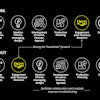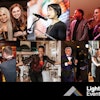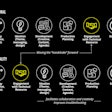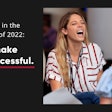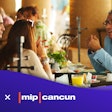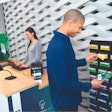Event planners have new technology options to facilitate attendee communications, networking, event staffing, and more. Here’s a look of the some apps and software that made headlines in 2016.
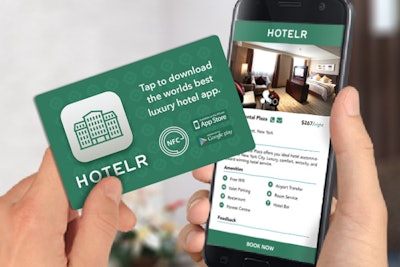
In early August, Tactify launched a new option for cloud-based interaction at events. Tappcards are like credit cards that come pre-programmed with content, such as digital brochures, PDFs, links to download apps, and more. Users access the content by either tapping the card to an NFC-enabled phone, scanning the QR code on the card, or typing in a short URL. Planners can create a custom design on the card to reflect their event’s brand, and they have access to an online dashboard to instantly change the content being offered and to track interactions.
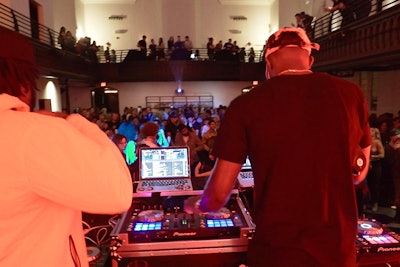
Lisnr uses ultrasonic audio called “Smart Tones” to transmit information between devices via sound that is inaudible to human ears. The tones can be added to existing media, for example music being played by a DJ, or transmitted on their own. To recognize the tones, guests must be using an app that has the Lisnr API embedded in it as well as enable the microphone on their device. Once that microphone is enabled, the app does not need to be open—which minimizes battery drain—and guests don’t need to have connectivity. In October, Lisnr announced a partnership with Splash, an event marketing platform, to create Smart Tone Ticketing. Attendees receive a Smart Tone ticket via email that can be used to check in at an event, without the need for Wi-Fi, Bluetooth, or any other form of connectivity.
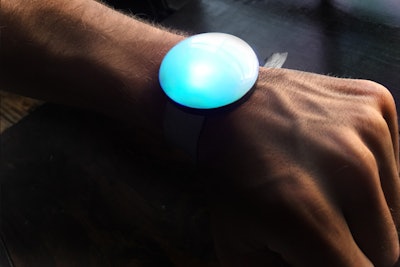
Hurdl has created a text-based data gathering and one-to-one communication system for events. The system is based on a wearable device known as a Pixl. It debuted at the 50th Annual Country Music Association Awards in Nashville in November. Guests activate the Pixl via text and then answer questions created by the host to gather the data they want on their attendees. That data is then used in two ways. First, organizers can illuminate the Pixls to differentiate audience subsets, for example all first-time attendees in blue and all 10-year attendees in green. Second, they can communicate directly with guests via text, either sending the same message to everyone or customizing the information and offers based on the person’s unique characteristics and interests.
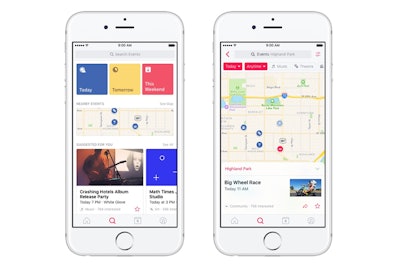
Facebook is continuing to expand its event promotion and discovery tools. Events From Facebook is a new app that launched in October. Users can browse event recommendations from friends and pages they like, find events using an interactive map, and search for events by city. Actions within the app are visible on Facebook so people can see what their friends are interested in. Earlier in the year, Facebook expanded its Facebook Live video tools. Now hosts can share live video just with people who have responded to an invitation, for example offering behind-the-scenes footage, guest interviews, Q&A sessions, and more.
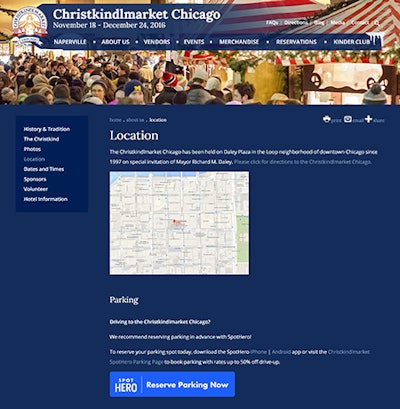
In mid-September, SpotHero launched a new service to help planners provide parking for their guests. SpotHero for Events creates a custom parking landing page that can be embedded on an event’s website and in other communication materials. Guests can use the service to find and reserve parking in advance. The system operates in real time to reflect street closures and construction. It’s currently available in 20 cities across the United States, including Chicago, Los Angeles, New York, and Washington, D.C., with more being added in the coming months.
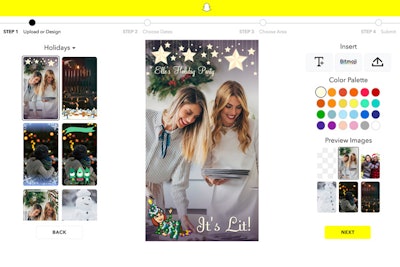
In February, Snapchat began offering on-demand geofilters. The service is intended for individuals and businesses that want to create a geofilter for their location or event, such as a conference or party. Users design the filter, use a map to set the boundaries of where the filter will be accessible, and choose the dates and time it will be available. On-demand filters can be created for 30 minutes or up to 30 days, with pricing starting at $5 depending on the size of the geofence and the amount of time the filter will be available. Hosts also get access to a dashboard to check total views and total uses.
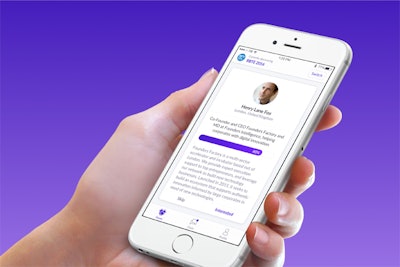
Similar to dating apps, Grip is an app to facilitate networking that requires both parties to “swipe” their interest in connecting. Once that is mutual, it triggers a “handshake” in the app and the two people can then communicate through in-app messages to share ideas and arrange a meeting. Users can log in with their LinkedIn or Facebook accounts and also add a description about their interests. The system’s algorithm uses that data to recommend people to meet. Users can also join any of the more than 500 networking communities that exist within the app. In addition to the Grip app, the company also offers a white-label version for events, and planners can also integrate Grip’s API into their existing app or website.
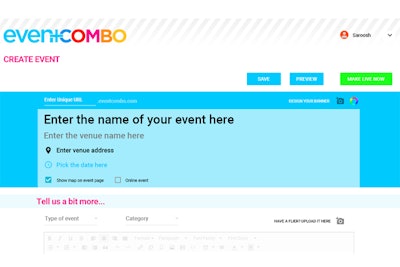
EventCombo is a ticketing system that allows hosts to bundle event tickets with other things attendees may want to purchase, such as meals from nearby restaurants, parking, merchandise, and more. Planners can customize the look of their event page with banners and colors. Merchants use the system to create and manage the deals they want to offer, and the system matches those deals with relevant events. Organizers receive a portion of the money generated by the sale of those items. Events that use the system are also listed on the EventCombo website and promoted through social media. The system launched in June.
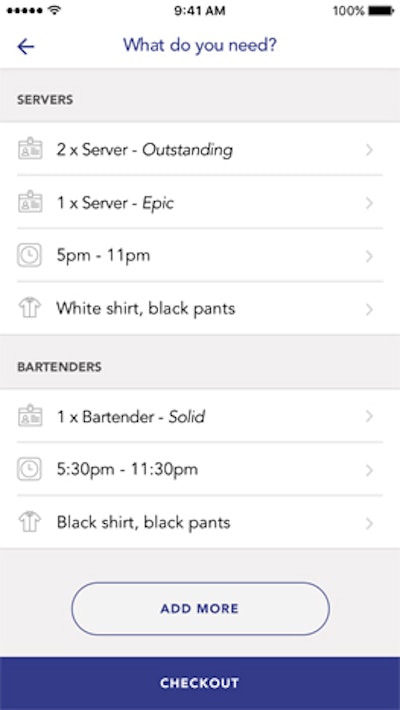
Jitjatjo is an app to facilitate on-demand temporary staffing for venues, caterers, events, and more. When a user requests staffing, the app handles the entire process from hiring through payroll. Requests can be made as late as an hour before a scheduled shift, for examples to replace people who have called in sick or simply don’t show up. The app analyzes requests and selects talent based on their experience, location, skills, availability, history, and ratings. Users can also request specific attire, include details regarding an assignment, and send messages in the app without having to share their contact information. Jitjatjo launched in October. It's currently available in New York, but the company is making plans to expand to other cities.

